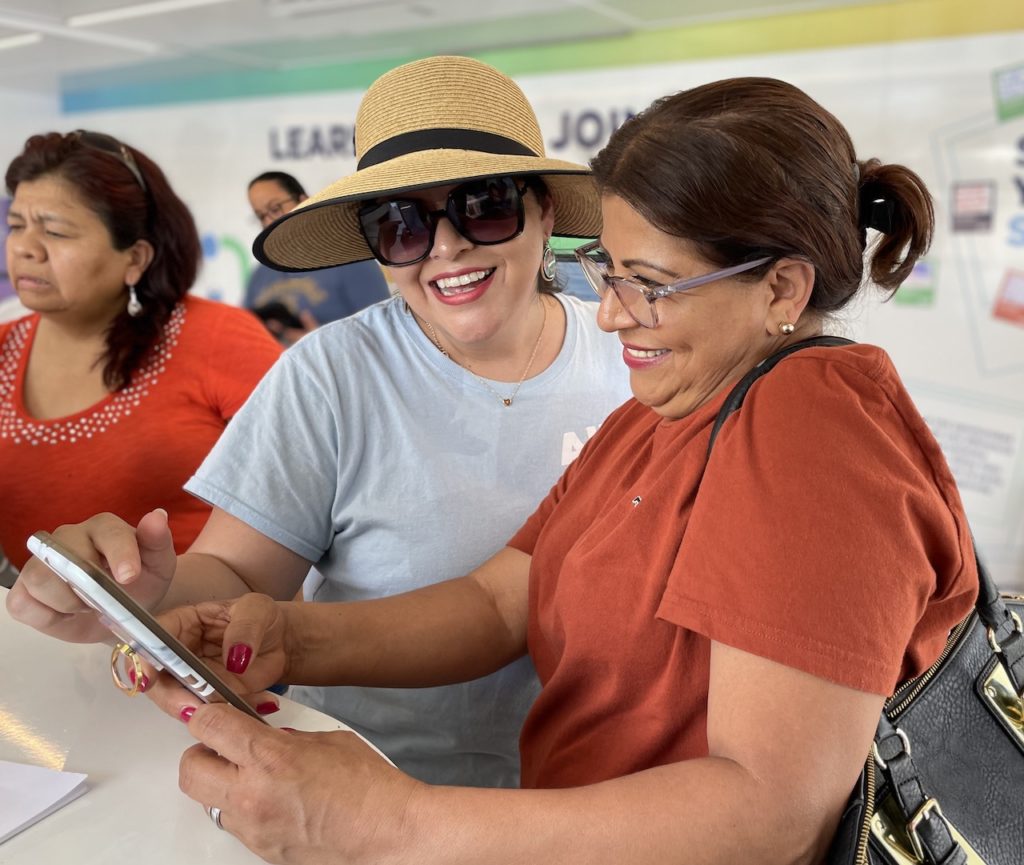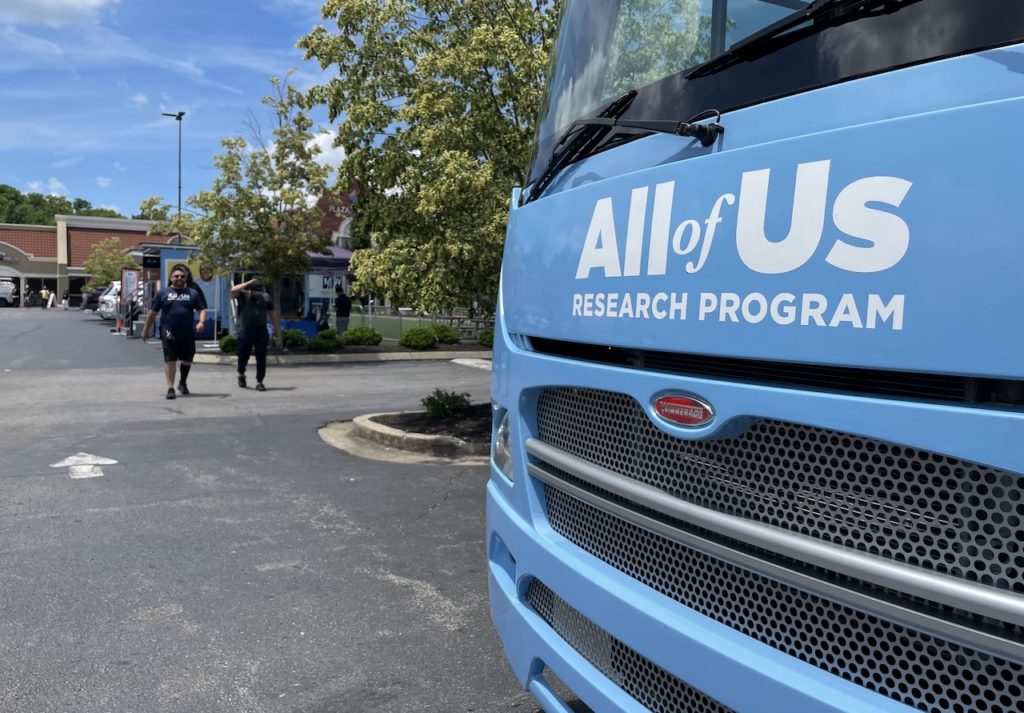
Nashville residents historically underrepresented in medical research have been offering up DNA samples all week as part of an effort funded by the National Institutes of Health. The “All of Us” research program is focused on recruiting people of color, primarily, to build a diverse, million-patient databank, which Vanderbilt University Medical Center will help manage.
The national bus tour, which paused during the pandemic, set up in the parking lot of Plaza Mariachi on Nolensville Pike. Maretza Castro, originally from Nicaragua, arrived to begin the process after hearing about the opportunity from Spanish-language journalist Veronica Salcedo on Nashville Noticias.
Castro says she’s willing to offer her blood and urine, along with electronic medical records, despite being a little fearful of how her own health information and genetic material will be used.
“Of course I’m afraid, but I know that this is good for other people,” she says through an interpreter. “It might be a personal inconvenience, but I’m here in this country.”
Maretza joins 341,000 patients across the U.S. (1,920 in Tennessee) who have consented, granted access to medical records, submitted body measurements and donated at least one biospecimen. Nearly 17% self-identify as Hispanic or Latino.
Though far from the million-patient goal, studies using the submitted data have already begun with more than 30 research projects underway. Vanderbilt’s role is to organize and secure the data, along with managing who will have access.
For patients, partial participation is allowed for those uncomfortable with sharing everything about their health and genetics. Organizers say transparency is a top priority.
“That’s why it takes some time,” says All of Us outreach manager Mae Sandberg. “We want to make sure that people are aware what they’re sharing, and they can say yes or no.”
During the pandemic, the outreach was entirely virtual. While participants can fill out the materials online and even offer samples through private lab companies, Sandberg says the in-person experience is crucial for some, like Maretza, who doesn’t speak English.
“If Maretza has a good experience, she’ll tell other people about it. And hopefully it becomes at least part of a conversation that probably never would have been a thing if she hadn’t crossed paths with us,” Sandberg says.
The collection site moves to Fiftyforward in Donelson next week, since seniors are also underrepresented in medical research.
 Blake Farmer WPLN News
Blake Farmer WPLN NewsThe All of Us bus is used to collect biospecimens while an open-air trailer houses tablets to be used for filling out surveys while asking questions of staffers.

